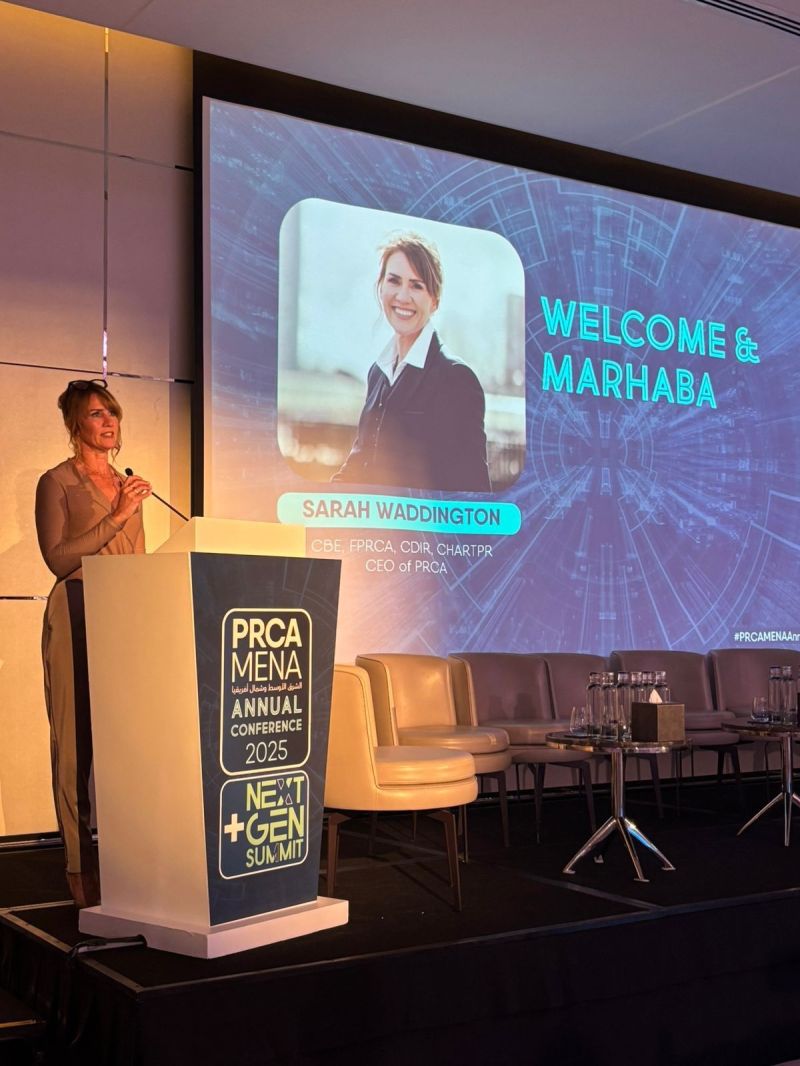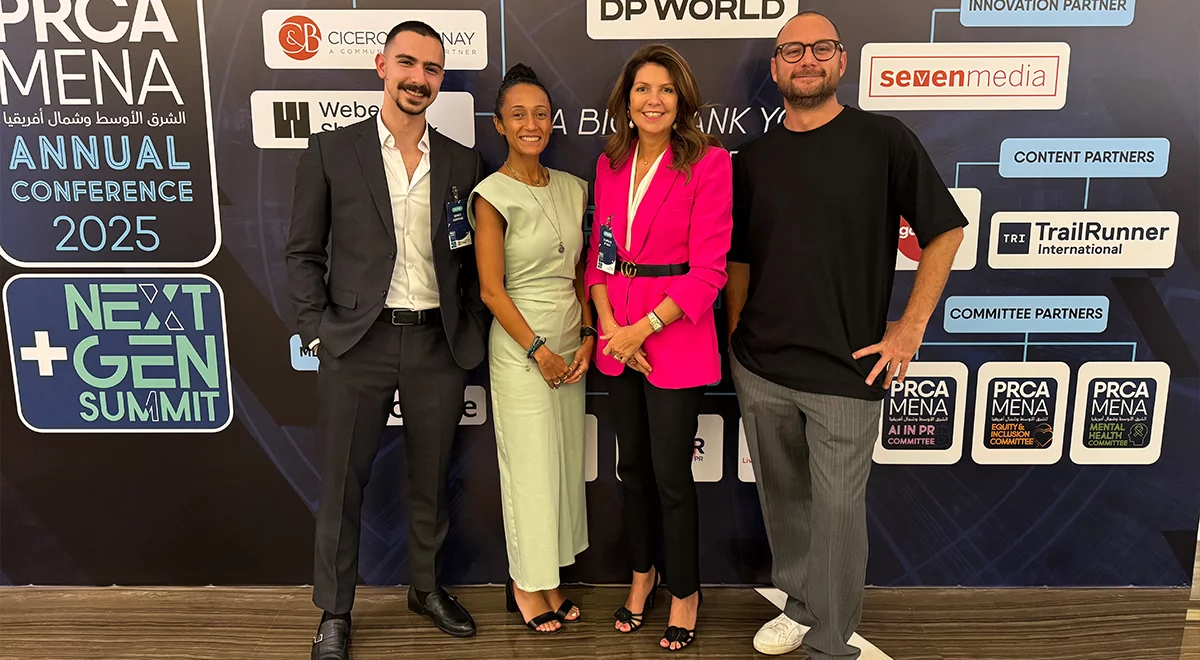The question hung in the air at the PRCA MENA Conference 2025: Is corporate purpose just fancy marketing speak, or can it drive real change? A panel of regional communications leaders wrestled with this challenge, and their insights cut straight to the heart of what’s wrong and right with CSR today.
Moderator Oscar Wendel, Executive Director – Middle East for Global Economic Sustainable Development Commission (GESDC) didn’t mince words in his opening.
“We’ve all seen those CSR campaigns that feel like posturing,” he said. “The question is: how do we create impact that actually means something?”
From Authenticity to Impact
Raefah Makki from UNHCR knows something about authentic purpose—she spends her days representing refugees and displaced people across the globe. For her, the shift toward meaningful CSR has been years in the making.
“We’ve moved way beyond just throwing aid at problems,” Makki explained. “Eight years ago, we launched the first-ever Refugee Zakat Fund because we recognized that our GCC audiences have deep giving traditions. It became one of our most successful fundraising channels—not because we forced Western models on local audiences, but because we listened.”
She pointed to another initiative that exemplifies this approach: refugee-made bracelets that provide economic opportunities for displaced people.
“This isn’t charity,” she emphasized. “It’s inclusion. It’s about creating sustainable support systems.”
Alka Winter from RAKTDA shared how Ras Al Khaimah found its authentic voice by looking inward rather than following global trends. “We positioned ourselves as the Nature Emirate—the mountains, the desert, the sea. This wasn’t some consultant’s bright idea. It’s what actually resonates with our communities.”
The approach is paying off financially too. Tourism currently represents 5% of the emirate’s GDP, but Winter’s team aims to triple that within a decade. “When you get the substance right first, everything else becomes a multiplier,” she said. “But you can’t fake it. If there’s no substance behind your story, audiences will see right through it.”
Sophie Simpson from Ruder Finn Atteline challenged the industry’s obsession with visibility metrics. Her team’s work with Netflix at the Red Sea Film Festival took a different approach—creating the Saudi Female Future Filmmakers program.
“We could have just thrown a big party and called it CSR,” Simpson said. “Instead, we brought in 15 women for two weeks of intensive training, and they pitched directly to Netflix executives. The goal wasn’t headlines—it was creating long-term access for the next generation of Saudi filmmakers.”

The program exemplifies what Simpson calls “hyper-localization”—understanding not just what a community needs, but how to deliver it in culturally relevant ways.
Thomas Morris from Finn Partners made an uncomfortable point for the industry: agencies can’t sell authentic purpose if they don’t live it themselves. “Purpose isn’t something you put on like a jacket,” he said. “It has to be embedded in your corporate governance, your client choices, your hiring practices.”
His firm puts money where its mouth is—they’ve never worked with fossil fuel companies, even in the oil-rich Middle East. “People ask if we’re turning down business. Absolutely. But it means when we talk about sustainability, we have credibility. And guess what? Renewable energy is now our fastest-growing practice.”
Long-term Thinking in a Short-term World
Mathilda Saad from APCO argued that the industry’s biggest problem is thinking in campaign cycles rather than purpose lifecycles. “A campaign is short-lived. Purpose is ongoing,” she said. “We need to stop throwing spaghetti at the wall and start building consistency.”
Her approach focuses on setting clear, long-term objectives from day one. “What are we actually trying to achieve? Who are we helping? The metrics go beyond reach and impressions—what’s the real impact? Are we raising funds, educating people, building grassroots advocacy? Those are the numbers that matter.”
Noura Al Sarraj from Weber Shandwick MENAT has watched audience expectations evolve dramatically.
“There was a time when clients would call asking for a press release about planting a single tree,” she laughed. “Those days are over. Today’s audiences are sophisticated. If your company values don’t align with their personal values, they’ll move on without a second thought.”
She stressed that cultural nuance matters more than ever. “Nike’s campaigns in Saudi Arabia aren’t the same as their Times Square billboards, and they shouldn’t be. Success means being in the boardroom from day one, making sure local insights shape everything from concept to measurement.”
As the panel wrapped up, a clear picture emerged of what works, and what doesn’t, in the region’s approach to corporate purpose.
The failures are easy to spot: box-ticking exercises that prioritize optics over outcomes, global campaigns copied and pasted without local context, and short-term thinking that treats purpose as a marketing campaign rather than a business principle.
The successes share common threads: they’re rooted in authentic company operations, co-created with local communities, and built for the long haul. They recognize that in a region where audiences demand authenticity, half-measures don’t just fail—they backfire.
As Makki put it best: “This isn’t about charity. It’s about inclusion.” In a world drowning in corporate buzzwords, that distinction might just be everything.




